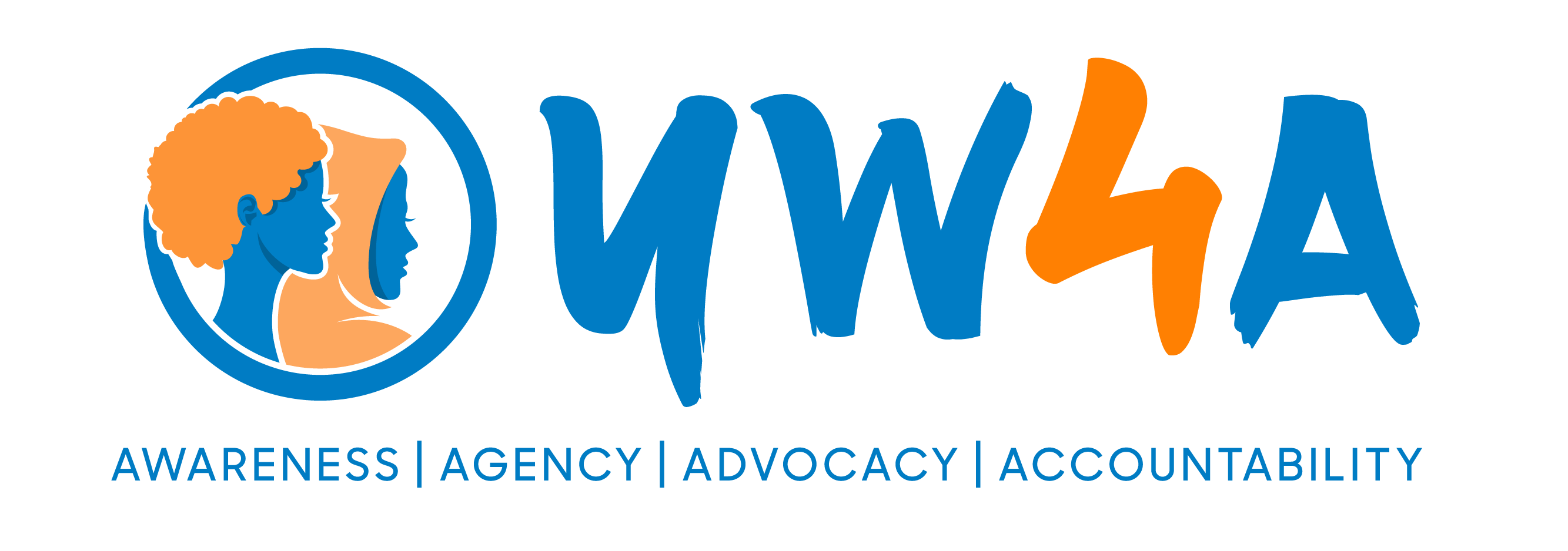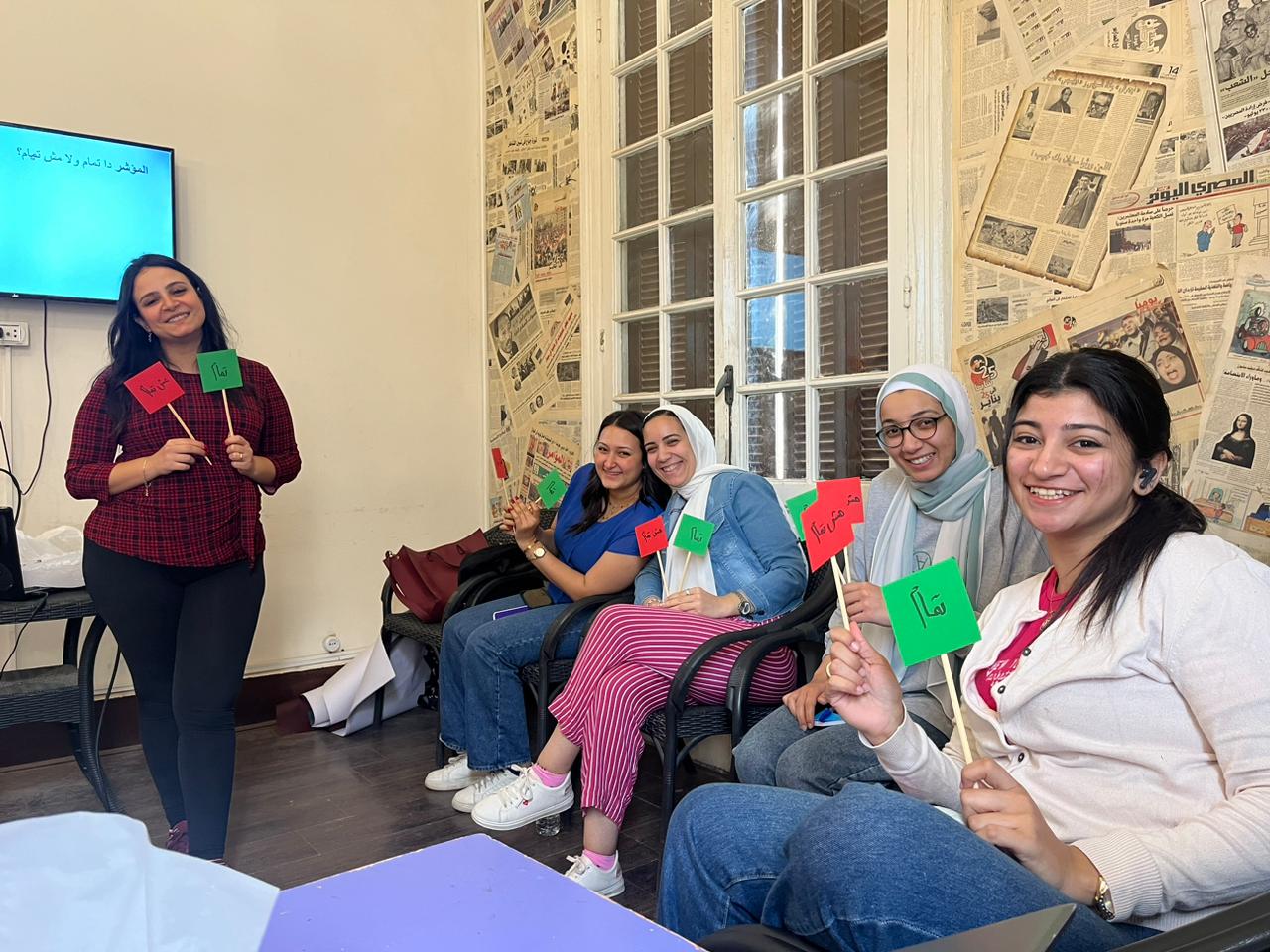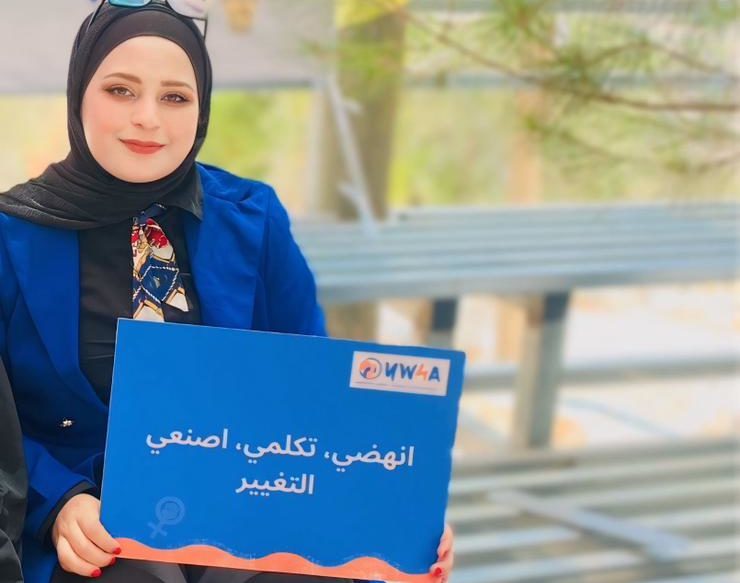
The Young Women for Awareness, Agency, Advocacy, and Accountability (YW4A) initiative consistently seeks and maximises opportunities for young women to showcase their leadership and contribute to essential discussions on various advocacy platforms.
The initiative takes a merit-based approach to engaging young women, offering opportunities to those whose interests and potential align with each specific endeavour. This approach has ensured equal access and inspired young women to participate in advocacy spaces, particularly those from marginalised backgrounds with limited access to such opportunities and resources.
Representing Palestine, 29-year-old Yasmin Adnan Ala’Eddin was one of three young women chosen to attend the Sexual Violence Research Initiative 2024 Forum (SVRI2024), held from 21 to 25 October in Cape Town, South Africa.
In this interview, Yasmin reflects on her experiences and the lessons she gained from the international convening.
Question: What was your motivation to apply for and to attend SVRI2024?
Yasmin: My motivation to attend the SVRI Forum 2024 was driven by my strong commitment to advancing women’s rights and combating gender-based violence. I also work in the YW4A programme, advocating for women’s empowerment and social justice. I was particularly eager to network with experts in the field, share insights about the projects we have implemented in Palestine and other regions, and introduce the Feminist Consultation Methodology (FCM) used in our research. This event provided a valuable opportunity to learn from global practitioners, exchange ideas, and explore evidence-based strategies that can lead to real social change for women.

Q: What are the main takeaways from the Forum?
- The FCM: During the forum, I had the opportunity to explain the FCM and interact with other Forum participants. This exchange helped me realise the importance of the FCM and highlighted areas for improvement, such as how to engage young women in our groups better. Understanding the challenges of attracting participants to these discussions has encouraged us to refine our approach and find more effective ways to ensure full participation.
- Institutional Support and Research Partnerships: Many of the research studies presented at the forum were well-funded and supported by large institutions, highlighting the importance of institutional backing in ensuring the success and impact of research. This insight can guide us in strengthening partnerships with institutions supporting and enhancing the YW4A initiative’s research and advocacy efforts.
- Networking with Organisations in the Field: One of the most rewarding aspects of the event was connecting with organisations that focus on women’s rights and gender-based violence. While the application of their work in Palestine may be limited, there is a strong potential for collaboration. This could open up new avenues for joint efforts and strengthen our network of allies in the field, facilitating cross-country partnerships for women’s empowerment.
- New Ideas for Programme Implementation: The event provided several new ideas and approaches that could be directly applied to subsequent phases of the YW4A programme. We gathered innovative strategies for advocacy and engagement, which can help us enhance our work, particularly in creating more inclusive and impactful initiatives for young women.

Q: Who did you connect with in the event?
At the YW4A booth, I actively engaged with attendees, sharing insights about our projects in Palestine and other regions. This hands-on interaction provided an excellent opportunity to connect with activists and practitioners interested in our feminist consultation methodology. Through discussions about our research process and exchanging ideas, I built meaningful rapport with peers who share a passion for advancing women’s rights and agency.
During networking sessions, I also had one-on-one conversations with representatives from organisations focused on gender-based violence prevention. These informal discussions provided valuable insights and opened doors for potential collaborations. While some initiatives may have limited application in Palestine, the prospect of cross-border partnerships was a significant takeaway.
Additionally, I visited other booths at the forum to learn about various organisations’ work and explore collaboration possibilities. Among the inspiring individuals I connected with were Hadeel Majeed, Senior Programme Officer at Kvinna till Kvinna; Emma Fulu, Founder and Co-CEO of The Equality Institute; and Salma Tayel, Programme Officer at Johns Hopkins University.

Q: What topics and sessions interested you the most?
Addressing Harmful Social and Gender Norms in Humanitarian Settings, Engaging Faith Leaders and Communities, by the World Health Organisations –This session explored faith leaders and communities’ critical role in challenging harmful gender norms, particularly in humanitarian settings. The discussion centred on the importance of leveraging local cultural and religious contexts to drive positive shifts in attitudes towards gender equality.
Movements: Sharing Stories of the Impact of Indigenous Feminist Movements on Preventing Violence Against Women and Children in Australia—Presented by Emma Fulu, this session highlighted the transformative impact of Indigenous feminist movements in Australia. Through powerful stories, it demonstrated how grassroots activism has effectively contributed to preventing violence against women and children, underscoring the significance of community-driven approaches in advancing social change.
- Co-Creating Interventions – Children and Youth: Improving Adolescent Girls’ and Women’s Access to Services in Refugee Camp Contexts – This session focused on strategies for co-creating interventions to enhance access to essential services for adolescent girls and women in refugee camps. It provided insights into collaborative approaches that address unique challenges faced by displaced populations, promoting gender-responsive solutions in crisis contexts.

Q: How did you cascade the learnings to your colleagues?
To share key insights from my trip, I began by discussing the activities and lessons learned during the forum with a small group of colleagues. This initial exchange provided a foundation for broader knowledge-sharing. i am planning a more detailed session for the larger team, where I will present an in-depth overview of the topics covered, projects discussed, and connections established during the event. The planned presentation will focus on the feminist consultation methodology and its influence on engaging young women in research, best practices and evidence-based approaches for preventing gender-based violence and networking highlights, including potential collaboration opportunities with organisations we connected with at the forum.
One challenge has been the limited scale of knowledge-sharing so far, as the broader team has not yet fully benefited from the learnings. This will be addressed during the upcoming session, ensuring the insights are effectively disseminated to everyone involved.
Q: How are you planning to apply the learnings you received in your life, in your community, or in the YW4A programme?
As a researcher, I have gained insights into feminist consultation methodology that have made me reflect on my research approaches. I’ve started to critically assess whether my methods align with feminist principles that prioritise inclusivity, respect for participants, and the importance of centring their voices throughout the research process. I plan to apply these insights by adapting my research practices to be more participatory and empowering for the young women involved, ensuring they are active agents in the research rather than just subjects.

In the YW4A programme, I plan to integrate the feminist consultation methodology into our research and advocacy work. This approach will help improve how we engage young women, ensuring their voices are heard and valued in decision-making. Additionally, I intend to share these insights with my colleagues in Jerusalem, fostering a more collaborative and inclusive research environment.
Regarding applying the feminist methodology, I compare inputs (the information we gather) with outputs (the outcomes of our discussions and activities) in each workshop I conduct. This comparison helps evaluate the effectiveness of the research process and ensures that the information collected reflects the perspectives of the participants. By focusing on practical, participatory research methods, I ensure that the process aligns with feminist principles by making young women active contributors, not just research subjects.
Q: What are your recommendations to improve the experience for Young Women in future events and conferences to specifically address the needs and interests of the YW4A programme?
To improve knowledge transfer, I recommend organising structured sessions, such as lectures or presentations, after discussions to deepen understanding of key topics. These sessions will help consolidate learning and ensure effective knowledge sharing. I can assist by helping to organise these sessions, ensuring that key takeaways are covered and young women gain practical insights that they can apply. Qualified speakers, clear presentation materials, and dedicated time in the event schedule will be needed for this approach. This method will provide a space for discussion and equip young women with concrete knowledge to apply in their advocacy and daily lives.




